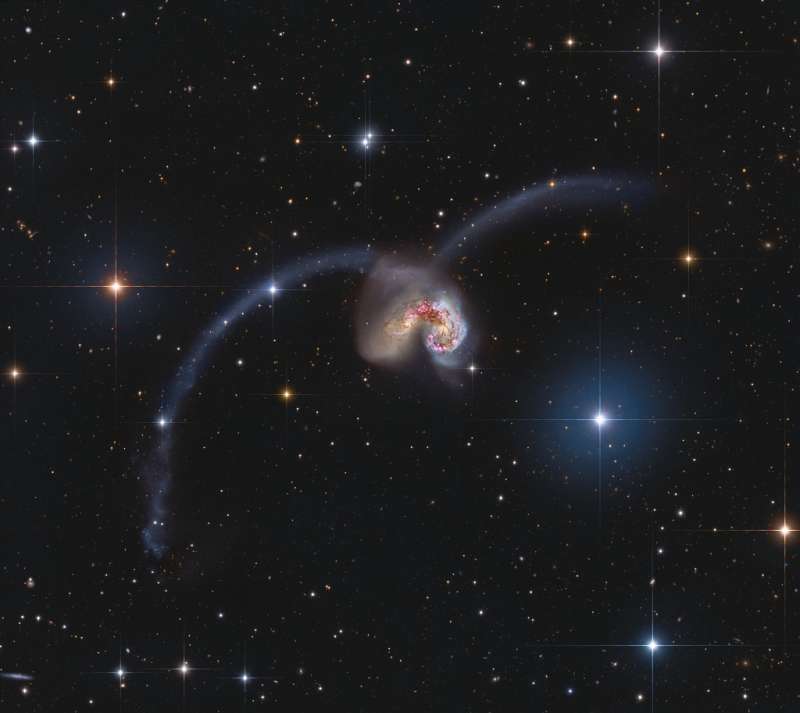 |
Астронет: Астрономическая картинка дня Изучая Антенны http://www.astronet.ru/db/msg/1381457/eng |
Credit & Copyright: Data;
Subaru, NAOJ,
NASA/ESA/Hubble -
Assembly and Processing;
Roberto Colombari
Explanation:
Some 60 million light-years away in the southerly
constellation
Corvus, two large galaxies are
colliding.
Stars in the two galaxies, cataloged as
NGC 4038
and NGC 4039, very rarely collide in the course of the
ponderous cataclysm that
lasts for hundreds of millions of years.
But the galaxies' large clouds of
molecular
gas and dust often do, triggering
furious
episodes of star formation near the center of the
cosmic wreckage.
Spanning over 500 thousand light-years, this
stunning view also reveals new star clusters and
matter flung far from the scene of the accident by
gravitational
tidal forces.
The remarkable mosaicked image was constructed
using data from the ground-based Subaru telescope
to bring out large-scale and faint tidal streams, and
Hubble Space Telescope data of extreme detail in the
bright cores.
The suggestive visual appearance of the
extended arcing
structures gives the galaxy pair its popular name - The Antennae.
Authors & editors:
Robert Nemiroff
(MTU) &
Jerry Bonnell
(USRA)
NASA Web Site Statements, Warnings,
and Disclaimers
NASA Official: Jay Norris.
Specific
rights apply.
A service of:
LHEA at
NASA /
GSFC
& Michigan Tech. U.
